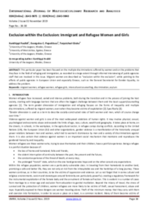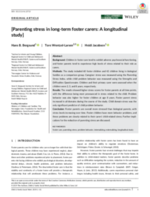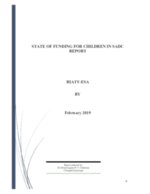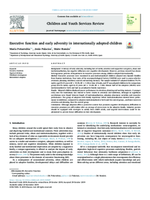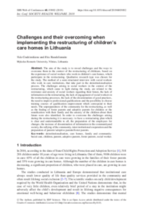Exclusion within the Exclusion: Immigrant and Refugee Women and Girls
This particular paper has been focused on the multiple discriminations suffered by women and girls (including unaccompanied minor girls) and on the problems that they face in the field of refuging and immigration, as recorded to a large extent through informal interviewing of public agencies staff that are involved in this issue.

